Your basket is currently empty!
Category: Garden
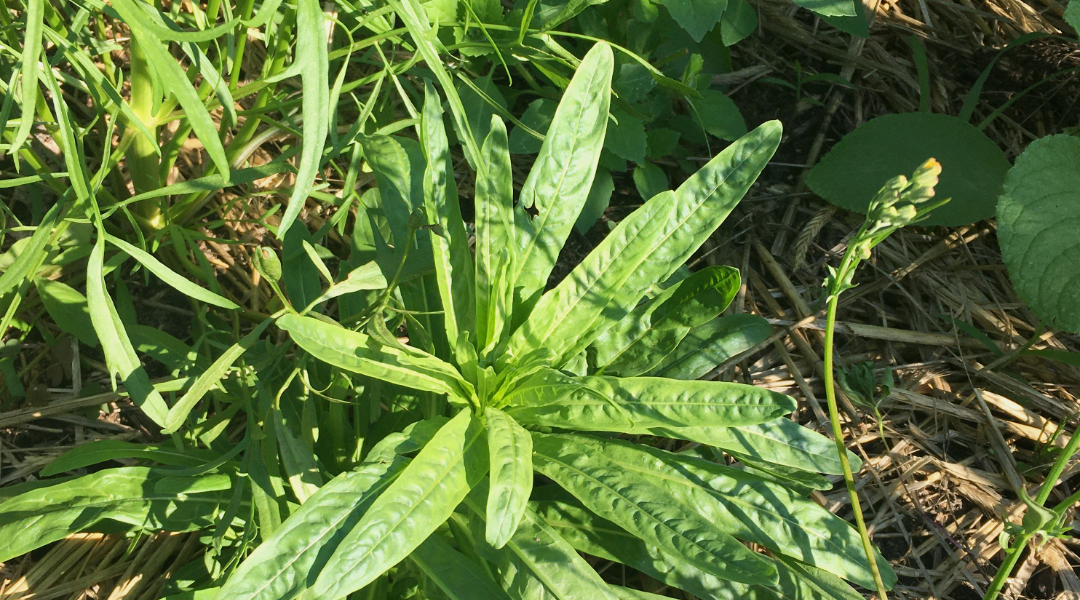
Im Färbergarten: Färberwau
Färberwau, botanisch Reseda luteola Der Färberwau, auch Färber-Resede, gehört zu den Resedagewächsen (Resedaceae), ist eine historisch wichtige Färberpflanze – die heute einigermaßen vergessen ist. Färbt man nicht mit Pflanzen, hat man vom Wau meistens noch nicht gehört, oder?

Garden mail from May
Erste Maihälfte im Färbergarten Die Färberpflanzen, die noch in der Wohnung standen, kamen Anfang Mai dann alle in den Garten zum Umgewöhnen an Draußen-Temperaturen und direkte Sonne. Zunächst hieß das, jeden Morgen einmal in den Garten radeln und abends noch einmal, denn in den ersten kühleren Nächten kamen die Pflanzen nochmal in die Laube. (Und…

Dye garden in April
This is part 1 of a small series about the year in my small dye garden. First of all, a few key points: I garden in a typical Berlin allotment, and I also want to harvest fruit and vegetables alongside dye plants, all that with very limited space. With typical Berlin soil - sandy and rather dry - and while living not right around the corner.

Im Färbergarten: Färberkamille
Färber-Hundskamille, botanisch Anthemis tinctoria Die Färberkamille gehört zu den Korbblütlern (Asteraceae), ist bei uns heimisch, insektenfreundlich und gehört zu den festen Größen in meinem Färbergarten.
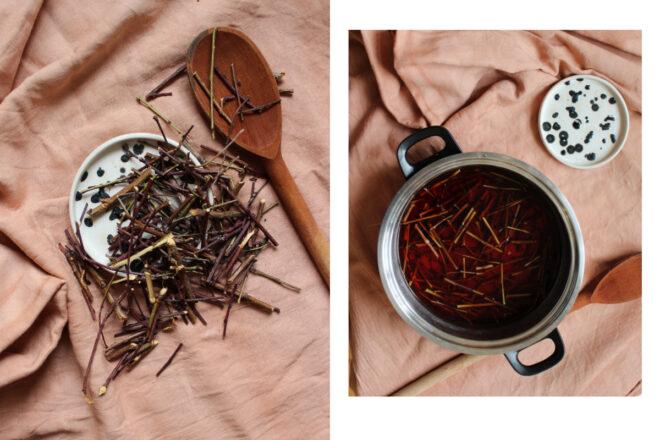
Dyeing with fruit pruning: apple, cherry and plum tree
Did you know that you can dye with fruit cuttings? Using twigs or branches from the many fruit trees that are pruned every year - usually in winter, when there are hardly any other dye plants outside. Some trees are even pruned again after the harvest. So lots of potential for the dye pot!
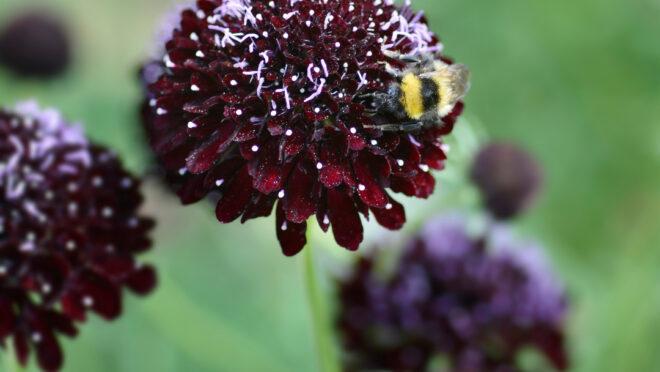
Im Färbergarten: Schwarze Skabiose
Pincushion scabiosa, botanically Scabiosa atropurpurea You may also know this scabiosa as velvet scabiosa. It comes in different colors, from very light like white or pale pink to deep dark red, almost black. I have them here as a 'black' variety, and these are probably the most interesting for dyeing.
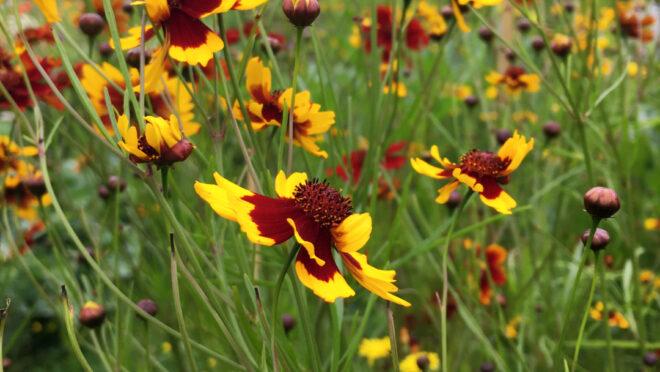
Im Färbergarten: Färber-Mädchenauge
Dyer's tickseed, botanically Coreopsis tinctoria Tickseed is an annual plant with delicate leaves and a large number of small flowers. The flowers are a warm yellow with a mahogany red eye.
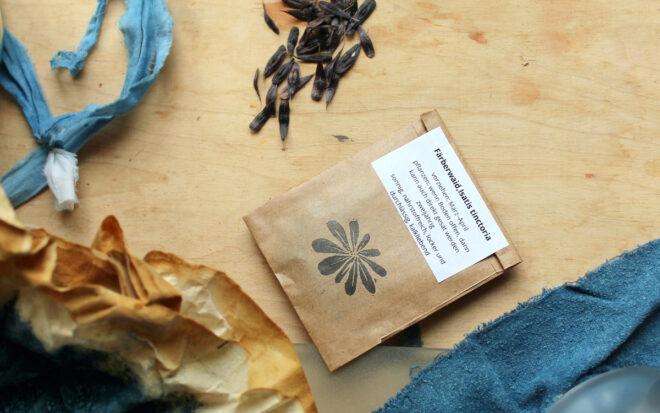
Im Färbergarten: Färberwaid
Woad, botanically Isatis tinctoria woad, has a long history in Germany, especially in Thuringia, where woad provided work and prosperity. The same applies to other regions in Central Europe, such as the southwest of France. Nevertheless, woad did not originally come from Central Europe. Woad was cultivated by humans very early on and has been used as a...
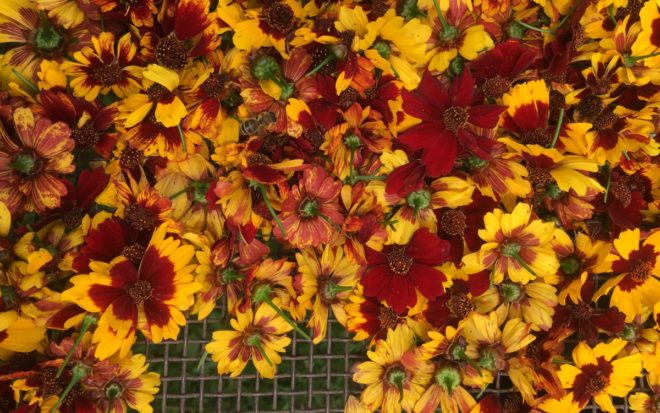
Start a dye garden
Färbergarten planen: Färberpflanzen für Garten und Balkon Ich gärtnere in einem Berliner Schrebergarten, mit begrenztem Platz, ohne Gewächshaus, und außer Färberpflanzen möchte ich auch Gemüse und Obst ernten. Diese Färberpflanzen hier sind meine „Grundausstattung“, und werden jedes Jahr wieder angebaut, auch wenn es eng ist… Ich färbe gerne mit ihnen, sie funktionieren in meinem Garten…
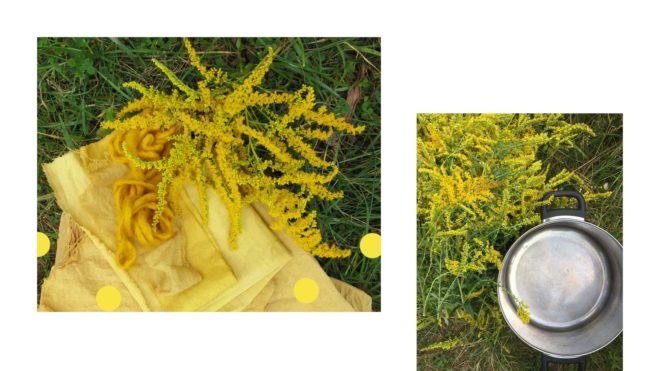
Dyeing yellow with goldenrod
From late summer onwards it can hardly be overlooked and is in full bloom: The time has come to dye beautiful yellows with goldenrod. Comparing my garden today on September 1st, 2020, with photos from previous years, it probably started to blossom earlier this year than in previous years. But it's still not too late to get your dye pots ready!
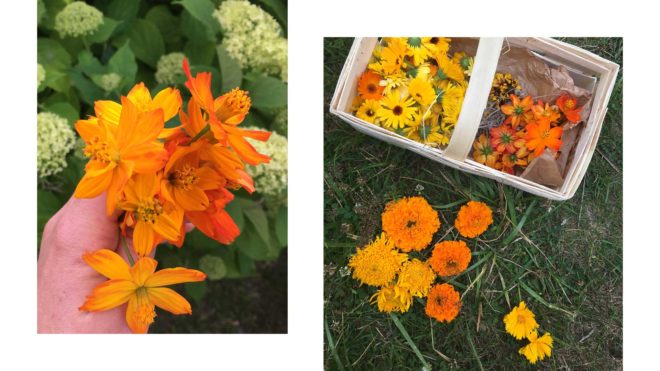
Dye plants in the summer garden
New website, new blog - to jump into the deep end, here's a short tour of the dye plants in the garden. In spring, I sent out a lot of seeds for dyer's plants and, of course, grew them myself. Instead of starting with a new workshop on the dyer's garden as planned, there were suddenly no more workshops at all with Covid -...